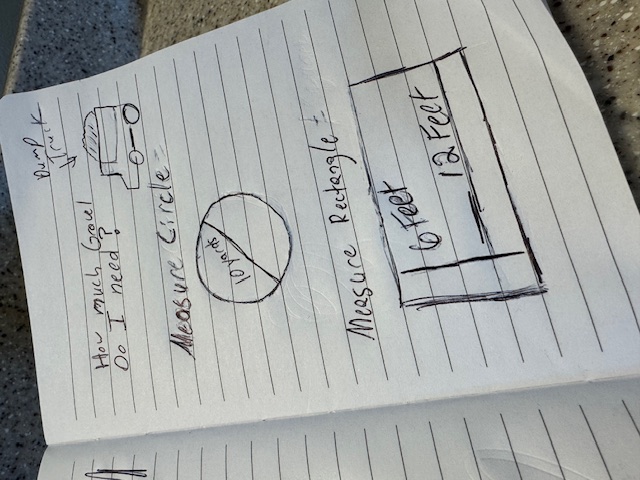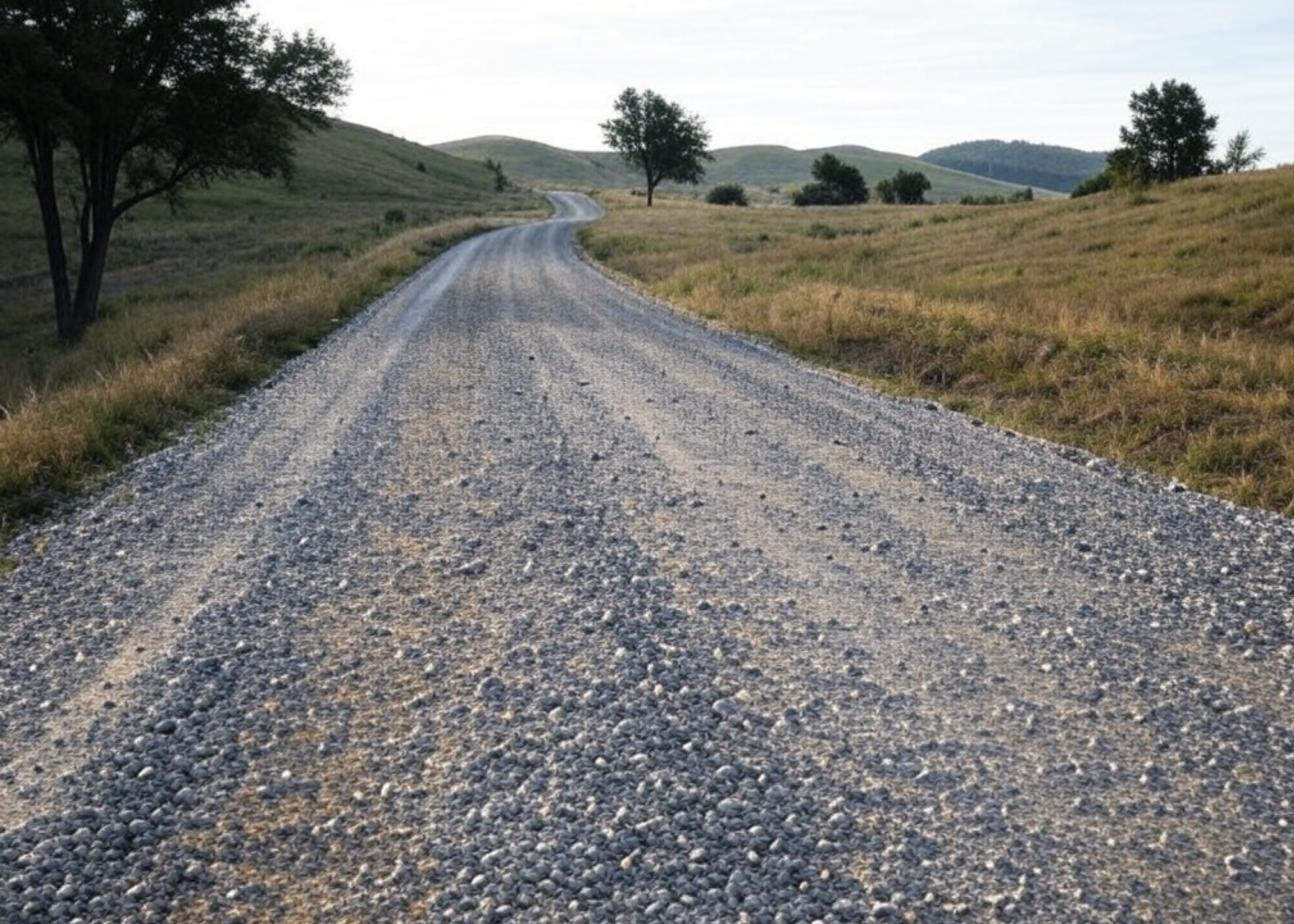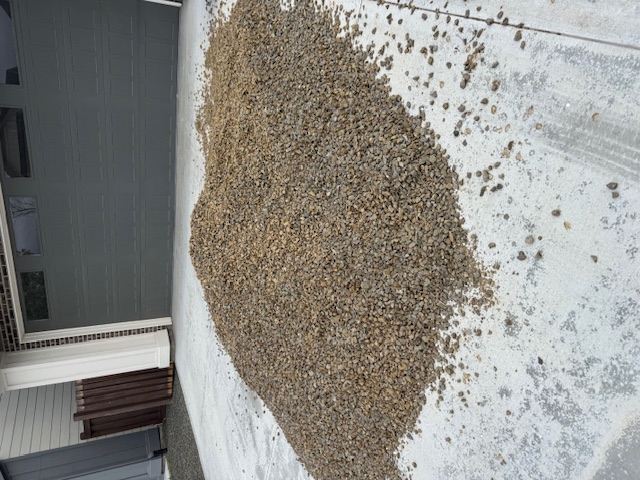Gravel Calculator: How Much Gravel Will You Need?
Calculate the amount of gravel you need for your next project based on size and shape of the project including rectangles, circles, and square properties.
How to Use the Gravel Calculator
This calculator helps you determine exactly how much gravel you'll need for projects like resurfacing driveways, landscaping borders, garden beds, creating a base for firepit areas, or even making a parking lot or road. Plan your project in cubic yards, tons, or bags based on the dimensions, area, or circle diameter and your selected gravel type for the most accurate results.
Step 1: Choose Your Calculation Method
The calculator offers three ways to determine how much gravel you need:
- Calculate by Dimensions: Enter the length and width of your rectangular or square project area.
- Calculate by Area: Enter the total area directly if you've already measured it.
- Calculate by Circle: Enter the diameter of a circular area for round projects.
Step 2: Enter Your Measurements
Input your project measurements using your preferred units and select your desired gravel depth. For most projects, a depth of 2-6 inches is recommended depending on the application.

Step 3: Select Your Gravel Type and Density
Choose the type of gravel that best fits your project needs:
- All Purpose Gravel: Versatile gravel suitable for most general construction and landscaping projects.
- Pea Gravel: Small, rounded stones ideal for walkways, patios, and decorative applications.
- Crushed Stone: Angular pieces that lock together well, ideal for driveways and drainage.
- Road Base Gravel: Compacts well for stable, load-bearing surfaces like driveways.
- River Rock: Smooth, rounded stones for water features and decorative landscaping.
- Granite Screenings: Fine granitic particles for pathways and between pavers.
Step 4: Specify Pricing (Optional)
To get cost estimates, you can enter your local pricing information (optional). Select how you plan to purchase gravel (by bag, cubic yard, ton, etc.) and enter the price per unit. The calculator will then provide a total cost estimate for your project. If no cost is enter, the tool will return a ball-park estimate of your project cost based on the average price per cubic yard of gravel in the United States between $10 - $100.
Step 5: Calculate and Review Results
Click "Calculate Gravel" to generate your results, which include:
- Volume in cubic yards, cubic feet, cubic meters, and liters
- Weight in pounds, tons, kg, and metric tons
- Area measurements (for dimension and circle calculations)
- Estimated cost based on your price inputs or a general price range
- Compaction adjustment recommendation
- Information about your selected gravel type and usage tips
Common Gravel Uses and Required Depths
Different projects require specific gravel types and depths to ensure proper function and durability. Here are some examples.
| Project Type | Recommended Depth | Recommended Gravel Type |
|---|---|---|
| Residential Driveway | 4-6 inches | Road Base or Crushed Stone |
| Walking Path | 2-3 inches | Pea Gravel or Decomposed Granite |
| French Drain | 8-12 inches | River Rock or Crushed Stone |
| Landscaping Beds | 2-3 inches | Pea Gravel or Decorative River Rock |
| Paver Base | 4-6 inches | Crushed Stone or Road Base |

How the Gravel Calculator Works
Core Volume Calculations
The calculator uses these fundamental formulas to convert your measurements into volume estimates:
| Calculation Method | Formula |
|---|---|
| Rectangular Area | Length × Width |
| Circular Area | π × (Diameter ÷ 2)² |
| Volume in Cubic Feet | Area (sq ft) × Depth (ft) |
| Volume in Cubic Yards | Cubic Feet ÷ 27 |
| Weight in Tons | Cubic Yards × Density Factor |
| Number of Bags | (Weight in Pounds) ÷ Bag Size (lbs) |
Gravel Type Density Factors
The calculator uses different density factors for each gravel type to provide accurate weight estimates. These density factors are based on industry standards and reflect the varying weights of different materials.
| Gravel Type | Approximate Density (lb/ft³) | Density Factor (tons/yd³) |
|---|---|---|
| All Purpose Gravel | ~100 lb/ft³ | 1.35 |
| Pea Gravel | ~96 lb/ft³ | 1.30 |
| Crushed Stone | ~105 lb/ft³ | 1.42 |
| Road Base Gravel | ~110 lb/ft³ | 1.49 |
| River Rock | ~100 lb/ft³ | 1.35 |
| Granite Screenings | ~105 lb/ft³ | 1.42 |
| Marble Chips | ~95 lb/ft³ | 1.28 |
| Lava Rock | ~50 lb/ft³ | 0.68 |
| Bank Gravel | ~100 lb/ft³ | 1.35 |
| Crushed Limestone | ~110 lb/ft³ | 1.49 |
Unit Conversion Formulas
The calculator performs these unit conversions to accommodate different measurement preferences.
| Conversion Type | Formula |
|---|---|
| Inches to Feet | Inches ÷ 12 |
| Yards to Feet | Yards × 3 |
| Centimeters to Feet | Centimeters ÷ 30.48 |
| Meters to Feet | Meters × 3.28084 |
| Square Yards to Square Feet | Square Yards × 9 |
| Square Meters to Square Feet | Square Meters × 10.764 |

Step-by-Step Calculation Example
Let's walk through a real-world example to demonstrate how the calculator works. Imagine we're building a gravel driveway measuring 40 feet long by 12 feet wide with a depth of 4 inches using crushed stone.
| Calculation Step | Formula | Result |
|---|---|---|
| Calculate Area | 40 ft × 12 ft | 480 sq ft |
| Convert Depth to Feet | 4 inches ÷ 12 | 0.333 ft |
| Calculate Volume (cu ft) | 480 sq ft × 0.333 ft | 160 cu ft |
| Convert to Cubic Yards | 160 cu ft ÷ 27 | 5.93 cu yd |
| Calculate Weight | 5.93 cu yd × 1.42 (crushed stone factor) | 8.42 tons |
| Add Compaction Factor (20%) | 5.93 cu yd × 0.2 | 1.19 cu yd additional |
| Total Recommended Gravel | 5.93 cu yd + 1.19 cu yd | 7.12 cu yd |
The key to accurate gravel estimates lies in understanding how different gravel types have different densities. For example, lava rock is much lighter per cubic yard than crushed stone or road base. The calculator accounts for these differences by applying specific density factors for each gravel type.
Important Unit Conversions:
- 1 cubic yard = 27 cubic feet
- 1 ton = 2,000 pounds
- 1 cubic yard of standard gravel ≈ 1.35 tons
- 1 cubic meter = 1.31 cubic yards
- 1 foot = 12 inches = 0.33 yards = 30.48 centimeters
I recommend adding at least 20% extra gravel to your calculated amount. This accounts for compaction, settling, uneven surfaces, and inevitable waste during installation. The calculator already factors this in, but it's good to understand why I decided to include the extra material in the results section.
Planning other landscape projects soon? You might also find these calculators helpful: Sand Calculator for sandbox or masonry projects, Mulch Calculator for garden beds, or the Topsoil Calculator for lawn preparation.
